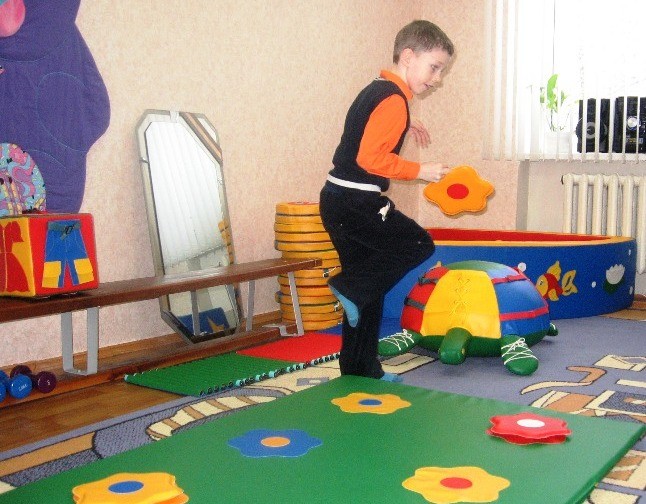
Aug. 2014—A Belarusian resource center is offering children with disabilities and their families a new home visitation program to better address their special needs, thanks to a USAID-sponsored exchange program.
In June 2012, during three weeks in Sacramento, Calif., Natalia Navitskaya, the head of a day care center at the Logoisk Territorial Center of Social Services, visited NGOs and governmental agencies, and had a unique opportunity to experience the best U.S. family-support practices aimed at creating a nurturing and safe environment for emotional, physical, developmental, and health care needs of children with disabilities from birth to age 5.
The visit was part of a USAID Community Connections program with the theme of Early Childhood Services to Disadvantaged Groups. It was one of eight Community Connection program themes in 2012.
Inspired by her U.S. experience, in January 2013, Navitskaya created an information resource center for children and young people with disabilities and members of their families, including a home visitation program. The facility is located at the Logoisk Territorial Center.
“Mothers of children with disabilities who live in rural areas practically have no access to social services, not to mention special professional care they really need,” says Navitskaya. “There are over 100 children with disabilities and about 20 young people with special needs registered in the Logoisk district. The home visitation program seeks to provide critical services, such as medical care and psychological assistance, by local professionals to the families living in the Logoisk rural area.”
Navitskaya improved the home visitation program concept by updating the previous “specialist-child” model to “specialist-parent-child.” The new model includes active involvement of parents in the development of their children.
But she didn’t stop there. She also developed a unified system of multifunctional support service for parents of children with disabilities, and focused on raising the competence of the specialists supporting these families. In cooperation with Community Connections alumna Anna Pugach, Novitskaya established the resource center where parents learn to develop adaptive behavior and positive attitudes towards themselves, their children and surroundings.
Through Effective Parental Skills trainings, parents develop positive parenting skills by increasing their ability to communicate effectively with their children by talking, listening, understanding and playing with them, as well as setting clear boundaries and dealing effectively with bad behavior.
Navitskaya plans to continue supporting the center and improving the quality of the services provided there, with a focus on expanding the parenting interventions program she has designed with her colleagues. Her efforts are expected to be shared regionally and nationally as best practices with fellow Community Connections alumni and their communities.
Community Connections is an exchange program that contributes to economic and democratic reforms by exposing Belarusians to American citizens and their culture. The program provides Belarusian professionals in business, education, law, civil society and government the opportunity to gain practical experience from their American counterparts. Each year, about 60 participants from different sectors take part in visits tailored to their professional interests. Since 2006, more than 340 professionals have visited the United States under the three-week program that includes site visits to American governmental agencies, businesses and NGOs.
LINKS
Follow @USAIDBelarus, on Facebook, on YouTube







Comment
Make a general inquiry or suggest an improvement.